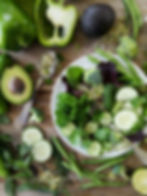What are Bifidobacteria?
Bifidobacteria is a gram-positive anaerobic bacteria genus that lives within our gut microbiome, as well as other microbiomes in the body, like the oral microbiome. This genus was also one of the first to colonize the human gut microbiome!
This particular genus is a major one that makes up our gut microbiome. Here are some specific strains you might've heard of before:
Bifidobacterium breve
Bifidobacterium longum
Bifidobacterium infantis
Bifidobacterium bifidum
What do bifidobacteria do?
Bifidobacterium have been shown to have a number of health benefits for us as the host of these microscopic bugs that call our gut home.
Here are some of the benefits that have been noted:
Certain stains have been shown to be cancer-protective (ie. protecting against colorectal cancer). Bifidobacterium animalis has been shown to have anti-mutagenic properties, meaning it can act against mutating carcinogens. B. longum and B. breve have also been shown to help protect DNA from potential damage by carcinogens.
Strains like B. longum subsp. infantis, and B. breve have been shown to reduce diarrhea that may be caused by rotavirus, as well as antibiotic-associated diarrhea in some cases.
Strains like B. animalis may be helpful in improving regularity.
Bifidobacteria strains may also be helpful in cases of IBD, as they may bring down inflammation in the gut.
Species in this genus are also super protective for the overall health of our microbiome, as they play an important role in "out-competing" pathogenic species that may be problematic for us, should they be able to flourish. Thanks little guys!
Bifidobacteria species are also known to create healing short-chain fatty-acids (SCFA's), like butyrate and acetate, as a byproduct of the fermentation process of certain carbohydrates in the gut!

How to increase bifidobacteria?
Some bifidobacteria can be found in fermented foods (though generally not as high in numbers as lactobacillus strains).
Incorporating fermented foods into your nutrition on a daily basis can be a great way to introduce more of these beneficial bacteria into your system (plus as a bonus, some ferments are also great sources of fiber, and bio-available nutrients!).
Sauerkraut
kimchi
sourdough
tempeh
miso
kombucha (in small amounts)
Bifidobacteria strains are also commonly found in a variety of probiotic formulas (multi-strain formulas), alongside other species like Lactobacillus and Saccharomyces boulardii. Multi-strain probiotics can provide you with a wide variety of lactobacillus strains, providing you with a variety of benefits!
Likewise, it's always really important to make sure that you're always "feeding" your microbiome with the nutrients that it needs. Here are a few things to consider:
aim for 6 cups a day of vegetables and fruit (and aim for a variety!) — this will help ensure you're getting lots of good fiber that your gut-bugs love to eat
incorporate prebiotic fibers: onion, garlic, chicory, sunchokes, asparagus, plantain flower, green banana, etc. are all high in prebiotics (prebiotic fibers are super important, as this is what these little guys feed on in order to create healing short-chain fatty acids!)
get your polyphenols in! (these are nutrients found in foods that are coloured deeply.. so embrace eating the rainbow)
To learn more about probiotics that I love, and how to further take care of your gut and your microbiome, check out my FREE Beginner's Guide to Gut Healing.

Key Take-Aways
bifidobacteria is one of the major genus' within the human gut microbiome, and provide us with a ton of health benefits!
they can promote regularity, are antagonistic towards colorectal cancer, can help to lower inflammation, are helpful to reduce certain instances of diarrhea, and help to keep our microbiome balanced and flourishing, but out-competing more pathogenic bugs
to get more of these strains, consumed fermented foods daily, and perhaps look into a multi-strain probiotic
support your gut microbiome through a variety of plant foods every day, especially through prebiotic fibers, and polyphenols
If you dig deeper into your microbiome and see what your bifidobacteria levels look like, check out my programs Gut Reset Program and Gut Rehab Intensive, where you'll have access to stool testing that can give you a deeper look into your gut microbiome.
